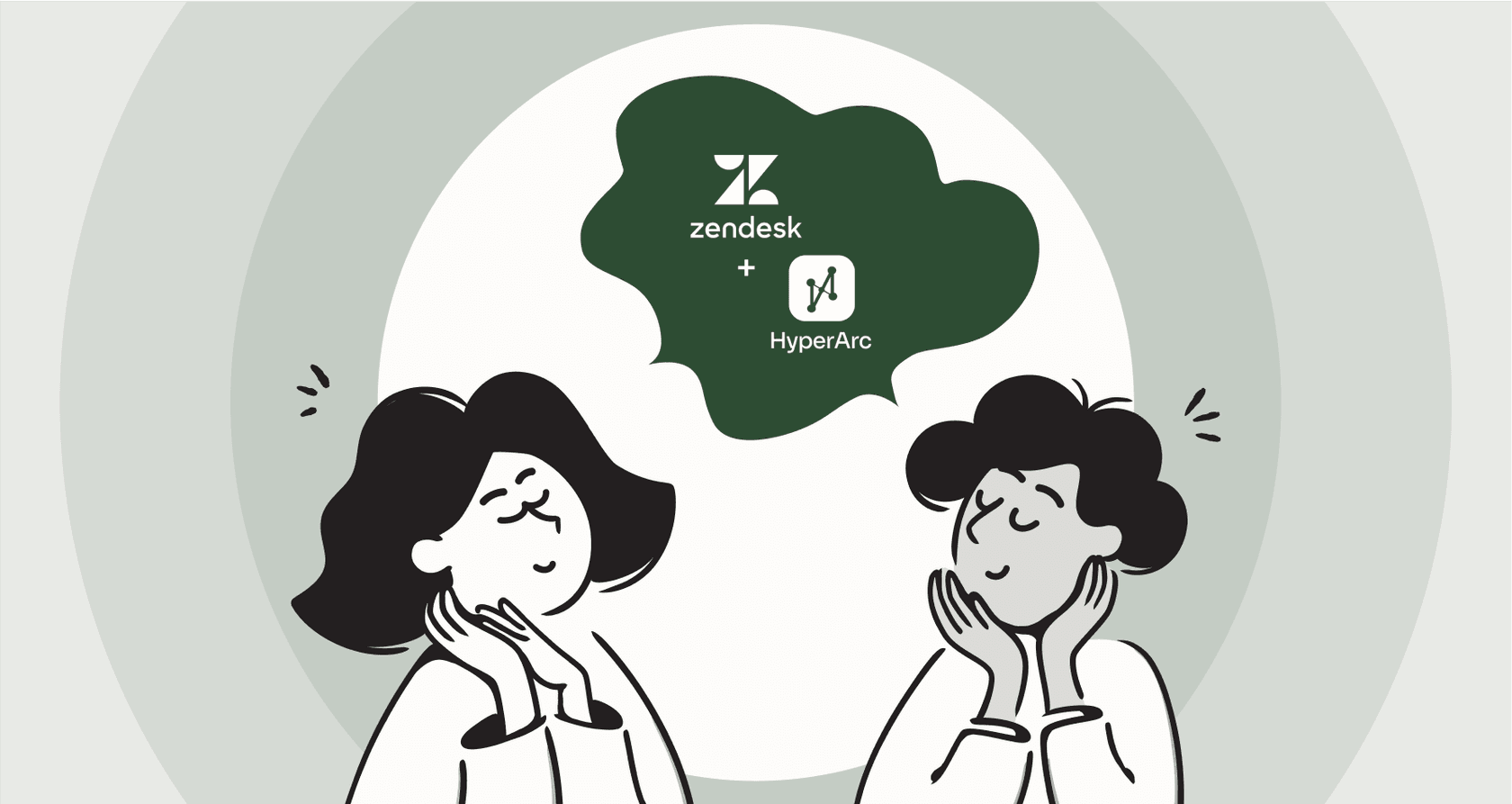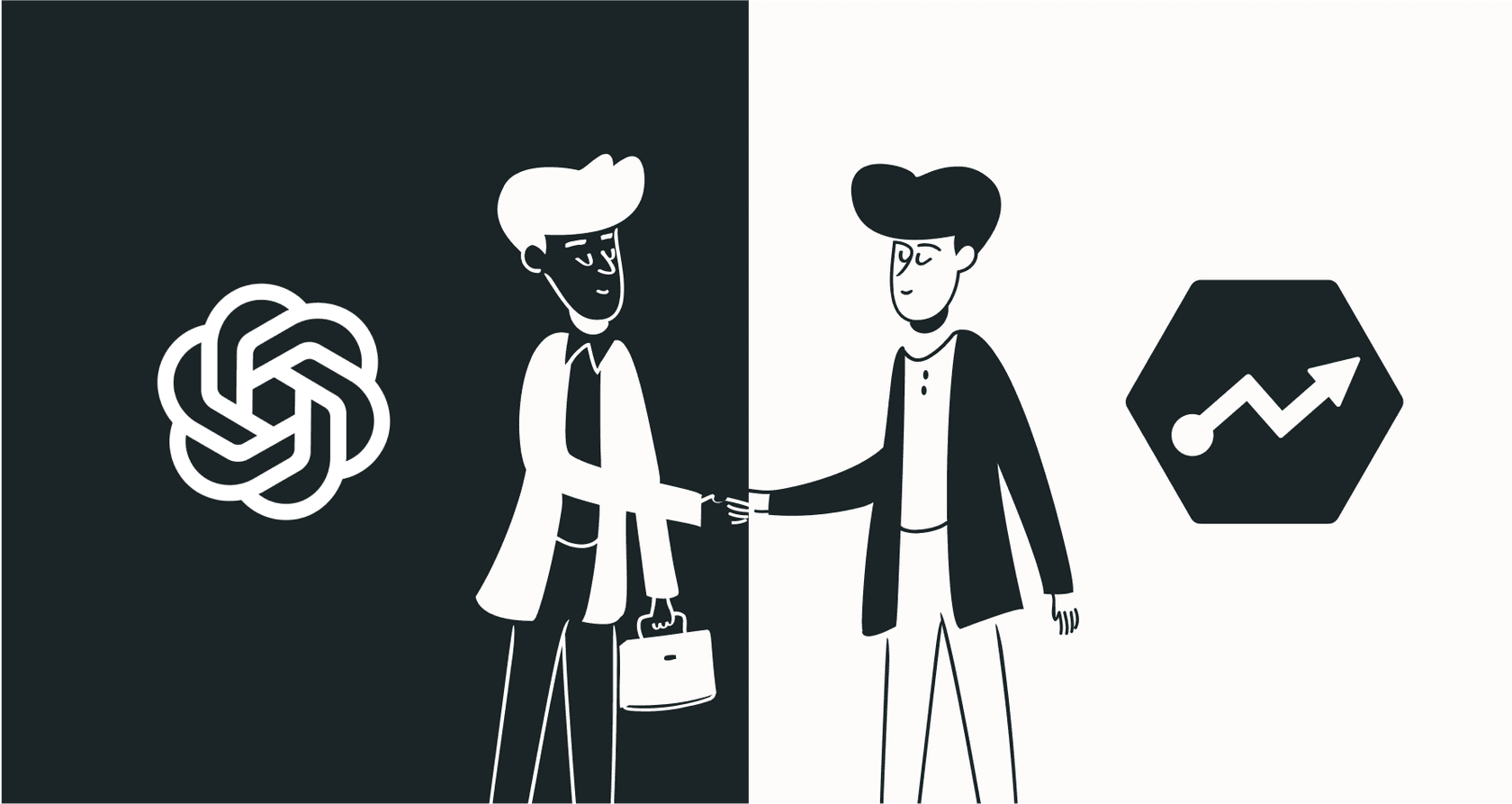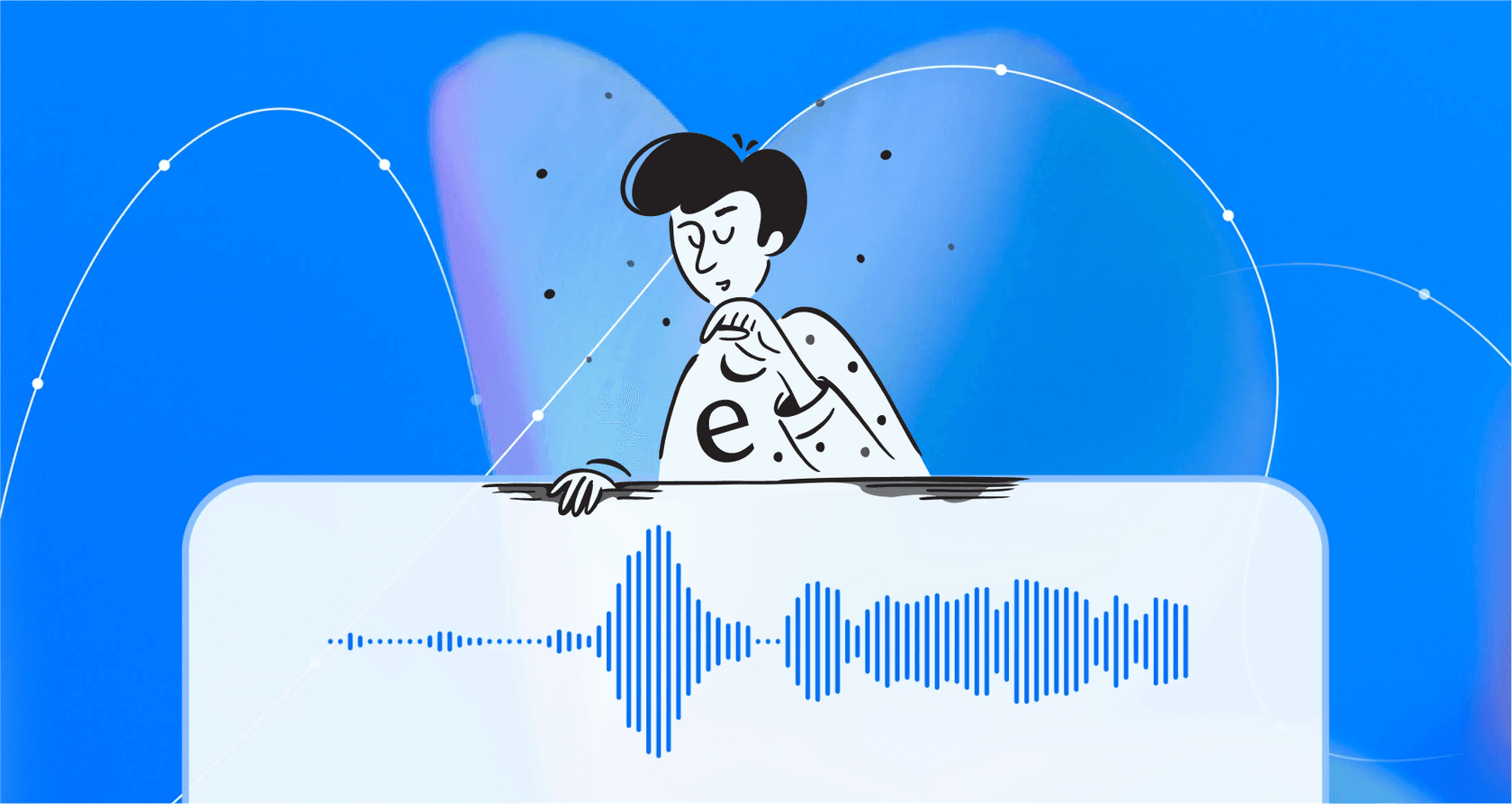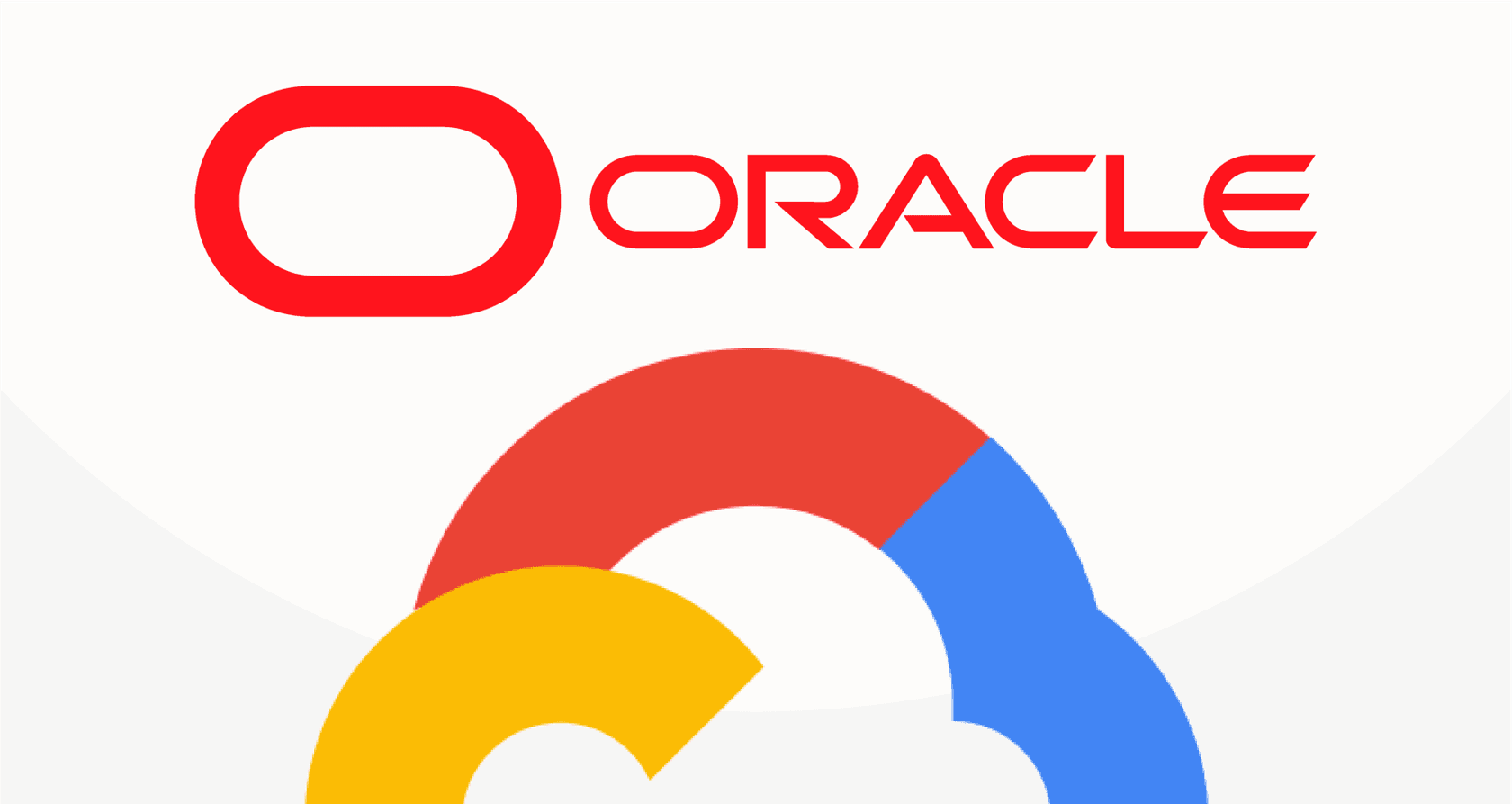
In the tech world, you don’t often see two giants team up in a big way. But that’s what happened when Oracle and Google Cloud announced they were expanding their partnership, making Google's Gemini AI models available directly through Oracle Cloud Infrastructure (OCI). It's a major headline and a perfect example of "co-opetition," where big competitors work together to move the industry forward.
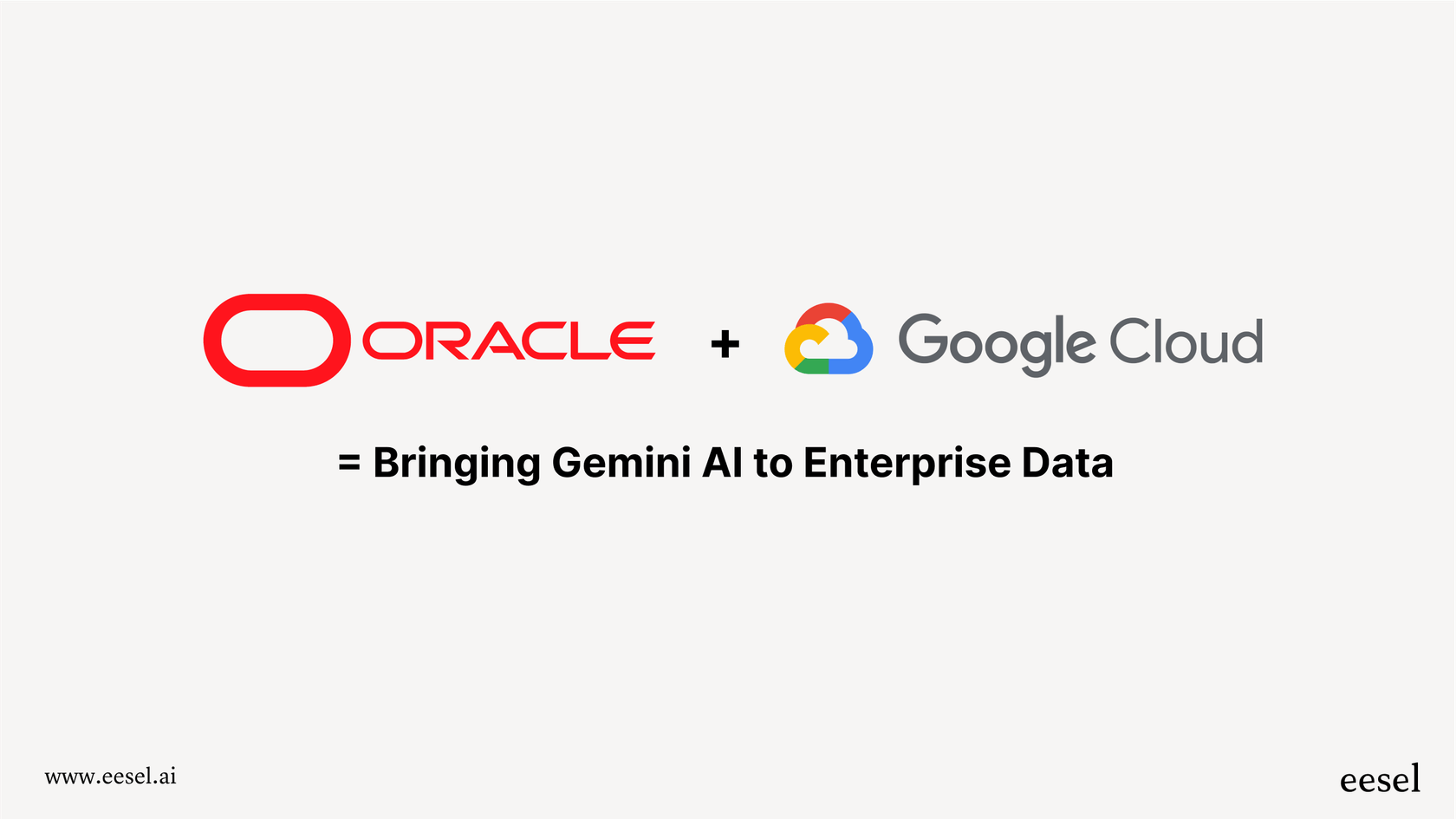
So, what does this actually mean for businesses trying to use AI? Let's get into what the partnership is, what it signals for the future of enterprise AI, and talk about a more direct way to use AI to solve your team's everyday problems.
What is the Gemini Oracle deal?
Let's skip the corporate jargon and get right to what this is all about. At its core, it’s a strategic team-up.
First, you have Oracle Cloud Infrastructure (OCI). Think of OCI as Oracle's heavy-duty cloud platform, built for the massive databases and critical apps that run the world’s biggest companies. It’s known for being secure and powerful, handling everything from global financial systems to complicated supply chains.
Then you have Google's Gemini. This isn't just a single AI; it's Google's most advanced family of AI models. Gemini is multimodal, which is a fancy way of saying it can understand and work with text, code, images, and video all at once. It’s the brain behind a lot of Google’s latest AI tools and is incredibly capable.
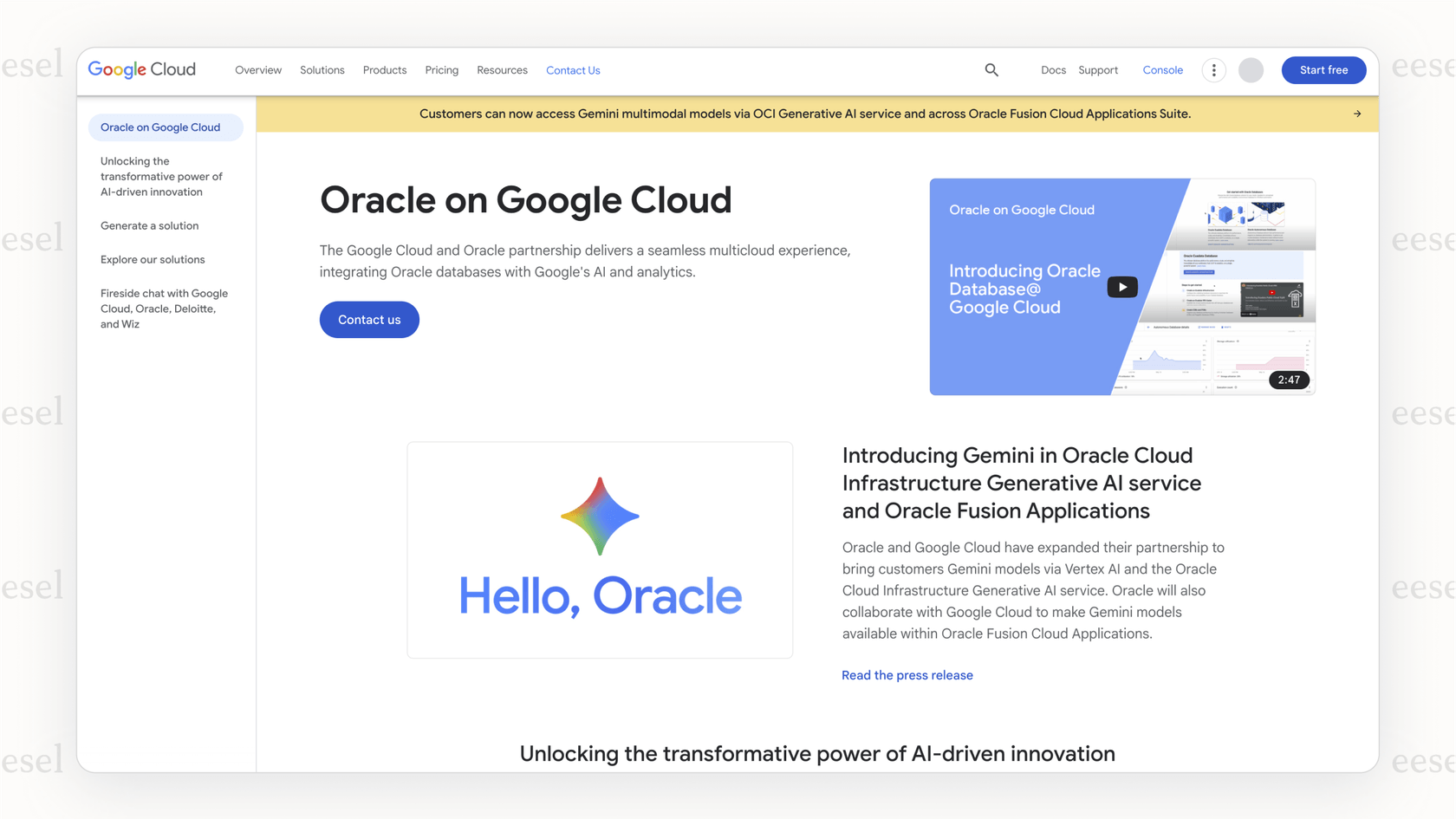
The partnership brings these two together. Oracle customers can now use Google's Gemini models right inside their OCI environment. They can even pay for it with their existing Oracle Universal Credits. This is a big deal because it means companies don't need a separate contract with Google, and they can apply Gemini's smarts to their own data without moving it out of Oracle's secure system.
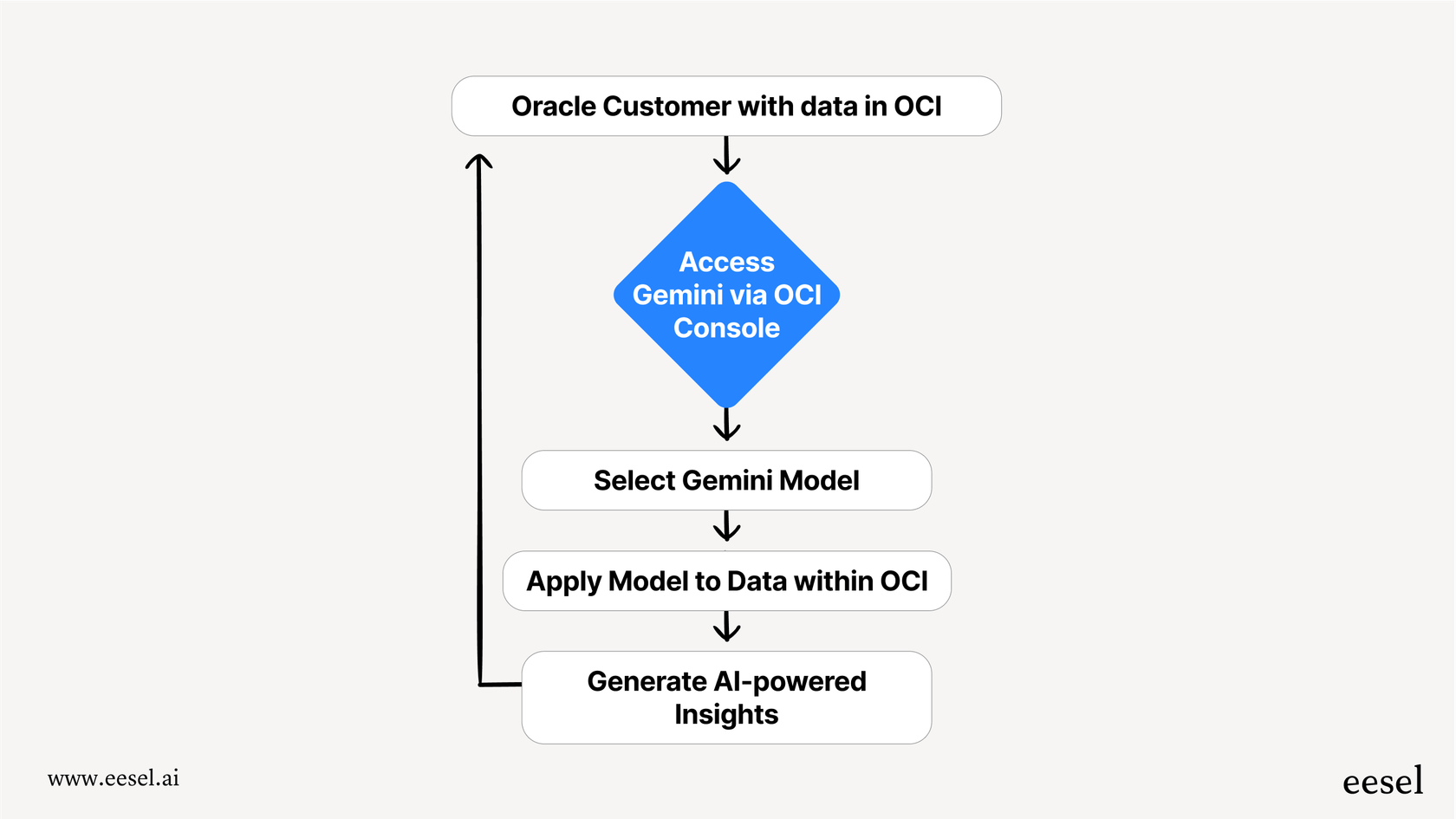
What this Gemini Oracle partnership means for enterprise AI
This agreement is more than just a new line item on a price list; it hints at some real shifts in how companies are approaching AI.
The rise of the multi-cloud "bring your own AI" model
For a long time, the big tech players wanted you locked into their world. If you used their cloud, they wanted you to use their AI, their databases, and their apps. That approach is starting to feel dated. Today, businesses want the freedom to pick the best tool for the job, regardless of who makes it.
The Gemini Oracle partnership is a great example of this. Oracle seems to have realized that instead of trying to build the world’s best language model from the ground up, it can offer more value by giving customers a menu of the best models out there. They're becoming a sort of "Switzerland" for AI, offering models from Google, xAI, Cohere, and Meta. This gives customers a ton of flexibility, but it also adds a new layer of complexity they have to figure out.
The benefits for massive, Oracle-centric companies
For the intended audience, huge corporations that are all-in on Oracle's software, the benefits are obvious. If your company's financial, HR, or supply chain data already lives in Oracle, you can now bring powerful AI directly to that data.
This opens up some interesting possibilities without the pain of a massive data migration project. You could have an AI agent generate real-time financial summaries by pulling from Oracle databases or create detailed reports on supply chain logistics by analyzing both text and images. For these specific, large-scale companies, this could be a huge win.
The challenge: Is this approach practical for your team?
But here’s the real question: while this setup is powerful, is it actually usable for the teams that need help the most?
Using the Gemini Oracle integration isn't exactly a plug-and-play situation. It calls for a team of highly skilled (and very expensive) AI and machine learning engineers, a hefty budget, and a long-term project plan. This is a solution built for developers working at a massive scale, not for a support manager trying to cut down ticket resolution times or an IT lead who wants to automate common employee questions.
For most teams, the problem isn't a lack of raw AI power. It's about getting that power connected to the right places in a way that’s fast, affordable, and easy to manage.
Practical use cases and limitations of the Gemini Oracle integration
It's worth taking a closer look at what this integration is really built for, and just as importantly, what it’s not.
Potential Gemini Oracle applications for large-scale AI projects
For companies with the budget and staff to build their own AI solutions, the possibilities are pretty impressive. Here are a few things you could do:
- Advanced code generation: Developers in OCI could use Gemini to help write, debug, and improve code for enterprise apps, which might speed up their work.
- Multimodal data analysis: A global logistics company could use Gemini to analyze satellite images of ports, shipping manifests, and text updates from drivers to spot potential delays before they happen.
- Internal knowledge retrieval: A pharmaceutical company could use plain English to search through decades of its own research data stored in Oracle databases, potentially finding connections that a human would have missed.
These are complex, custom-built projects. But what about the day-to-day business problems most teams face?
The hidden costs and practical limitations of Gemini Oracle
This is where the idea starts to break down for most businesses. The power of the gemini oracle integration comes with some serious catches.
- Cost and Complexity: While paying with Oracle credits is handy, the actual cost of running advanced models like Gemini at scale can be huge and hard to predict. And the setup is far from a one-click install; it's a full-on engineering project that could take months.
- Overkill for Core Business Needs: For most common challenges, like answering customer questions, sorting IT tickets, or helping employees find HR info, this level of raw power is just not necessary. It’s like using a sledgehammer to crack a nut. You end up paying for capabilities you’ll never touch, and the complexity just gets in the way of solving the actual problem.
- Lack of Specialization: Foundational models like Gemini are incredibly smart, but they’re generalists. They don’t know anything about how a support desk works or what a standard IT workflow looks like out of the box. You have to build that entire functional layer yourself. In contrast, platforms designed for specific jobs, like AI for customer support, come with the necessary workflows already built in, saving you months of development.
A more accessible path to enterprise-grade AI beyond
The good news is you don’t need a multi-billion dollar partnership to get great results from AI. The idea that you need a tech giant to do meaningful work is quickly becoming outdated.
You don't need a hyperscaler like Gemini Oracle for powerful results
The real value from AI doesn't come from having access to the biggest model on the planet. It comes from applying the right model to your specific workflows and knowledge, quickly and without a fuss. The most effective AI is the one that fits right in with the tools your team uses every single day, whether that’s Zendesk, Jira Service Management, Slack, Confluence, or Google Docs.
How eesel AI delivers value without the overhead
This is where a purpose-built platform like eesel AI comes in. It’s designed to solve the very problems that the hyperscaler approach creates.
- One-Click Integrations: Instead of a multi-month engineering marathon, you can connect your help desk, collaboration tools, and knowledge bases in minutes. No coding needed.
- Purpose-Built for Support and Internal Ops: eesel isn’t a general-purpose model. It’s a specialized platform with products like our AI Agent and AI Copilot that are ready to use from day one. Features like automated ticket triage and intelligent replies are already built-in, not something you have to develop from scratch.
- Trains on Your Real Content: eesel learns from your actual knowledge, things like past tickets, help center articles, and internal wikis. This is the outcome big companies want from the Gemini deal, but eesel makes it completely self-serve.
- Transparent, Scalable Pricing: Forget confusing cloud credits and unpredictable usage bills. eesel offers clear, interactions-based pricing so you pay for the value you actually get, not for access to a complicated platform you have to build on.
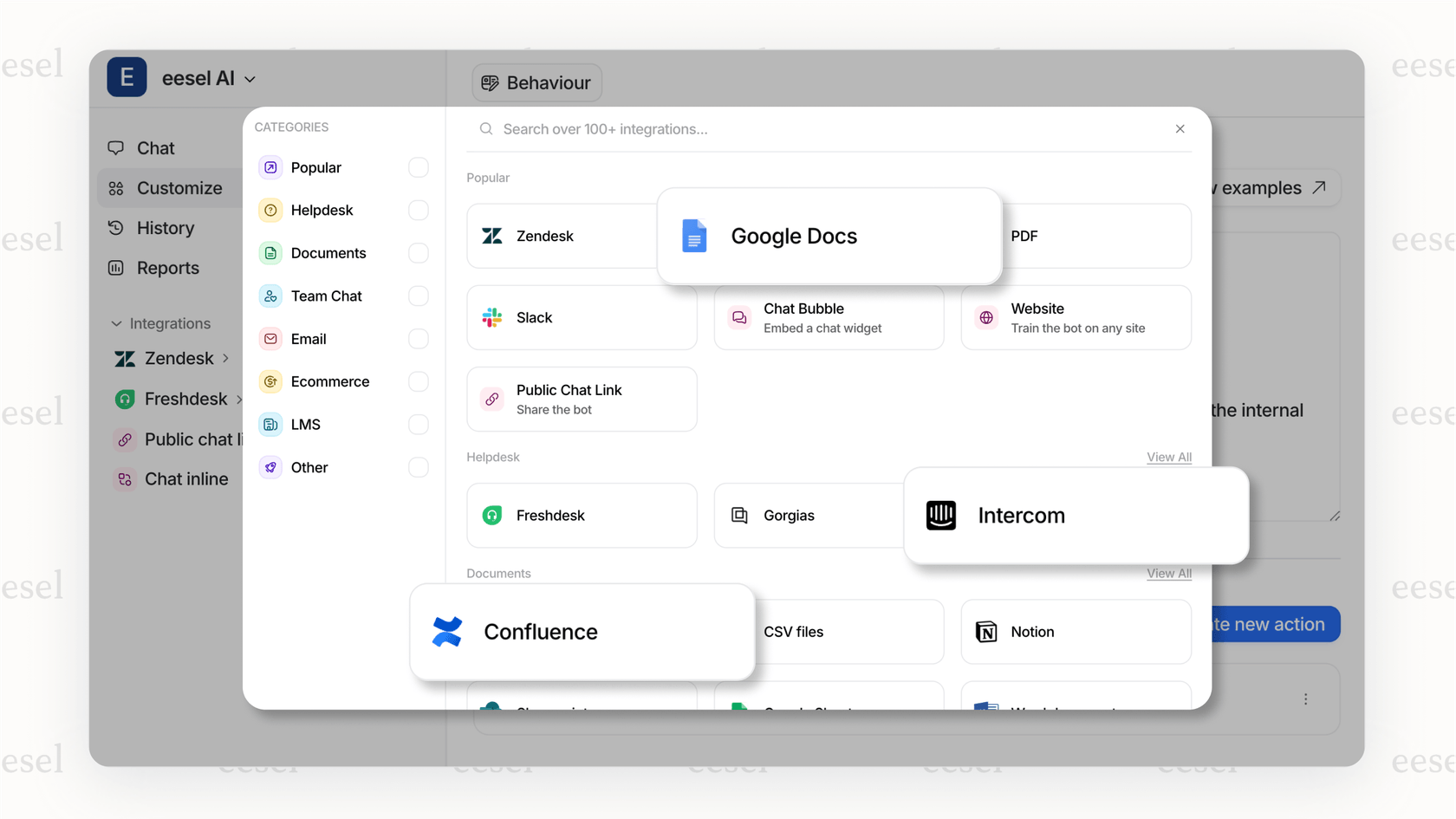
Here’s a quick comparison:
| Feature | Gemini on Oracle Cloud | eesel AI |
|---|---|---|
| Setup Time | Weeks to Months | Minutes to Hours |
| Required Team | AI/ML Engineers, Developers | Support/IT Managers (No-code) |
| Primary Use Case | Custom, large-scale AI development | Out-of-the-box support & internal automation |
| Integrations | Deep integration with Oracle services | 100+ one-click integrations (Zendesk, Slack, etc.) |
| Pricing Model | Consumption-based on cloud credits | Transparent, per-interaction tiers |
The AI future is accessible, not just powerful
The Gemini Oracle partnership is an interesting move and shows just how serious the enterprise AI market is getting. For the handful of Fortune 500 companies that live and breathe OCI, it’s a powerful new tool to have.
But for most businesses, the future of AI isn't about having the most raw power. It’s about accessibility, getting value quickly, and fitting into the workflows you already have. The real revolution is making this technology available to everyone, and solutions like eesel AI are doing just that by making powerful automation something any team can achieve, without the enterprise-level price tag or complexity.
Get started with practical AI today
Ready to see how easily you can set up a powerful AI agent that works with your existing tools? Book a demo or start your free trial of eesel AI and connect your knowledge sources in just a few minutes.
Frequently asked questions
This partnership is primarily built for large enterprises with dedicated AI and machine learning engineering teams. Setting it up requires significant technical expertise, making it impractical for most business teams who need a plug-and-play solution.
No, a key benefit of the partnership is that your data stays within Oracle Cloud Infrastructure (OCI). Gemini models are brought to your data, which means you can apply Google's AI without migrating sensitive information out of Oracle's secure environment.
The Gemini Oracle offering provides raw AI power that you must build custom solutions on top of, which takes months of development. Specialized tools like eesel AI are purpose-built for specific jobs like customer support, offering ready-to-use workflows and one-click integrations that deliver value in minutes.
It's designed for massive, Oracle-centric companies that already have their core data in OCI and possess the budget and technical staff to undertake large-scale, custom AI development projects. It's ideal for complex tasks like multimodal data analysis or building proprietary code generation tools.
While you can pay with existing Oracle credits, the implementation itself is far from simple. It is not an out-of-the-box product but a powerful toolset for developers, requiring a full-scale engineering project to integrate and build applications with.
Share this post

Article by
Stevia Putri
Stevia Putri is a marketing generalist at eesel AI, where she helps turn powerful AI tools into stories that resonate. She’s driven by curiosity, clarity, and the human side of technology.


